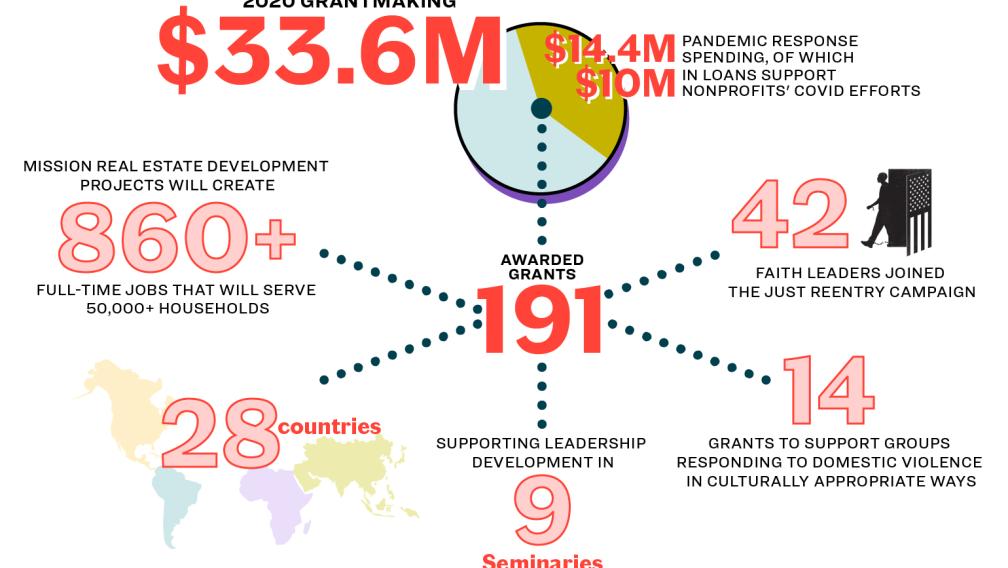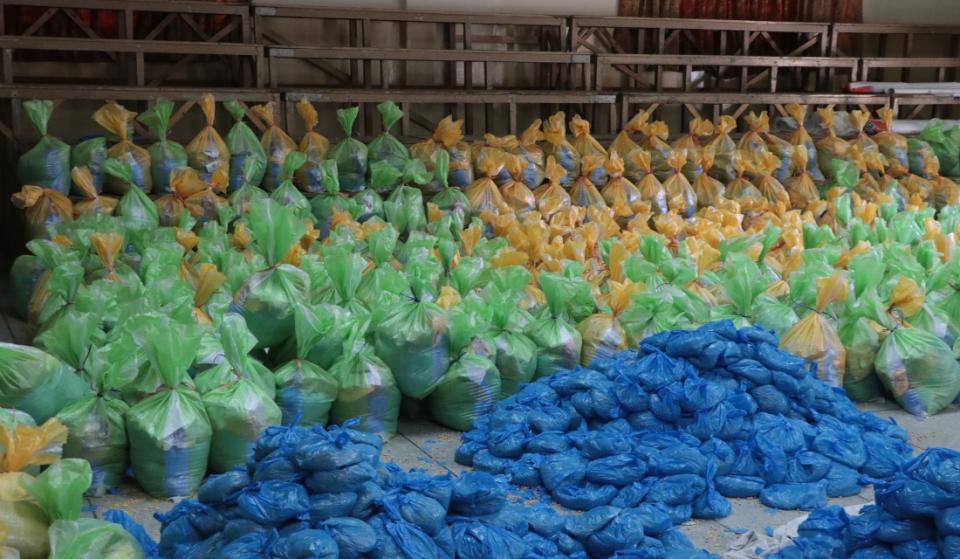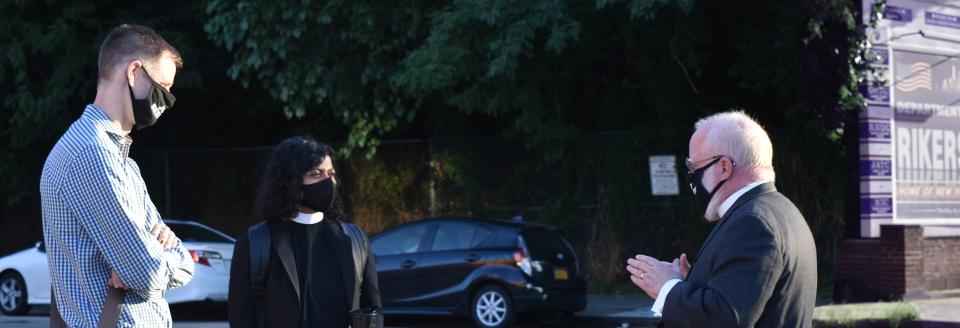A Peek Behind the Numbers

2020 was a significant year for Trinity’s Grants and Mission Investing (GMI) team. We more than doubled our grantmaking to meet the challenges of the global COVID-19 pandemic, a severe recession, and a reckoning with racial injustice. To fully capture the scope of how our work has grown over the last year, we took a step back to reflect on the breadth and depth of our response, as illustrated in the above infographic. We worked across all four of GMI’s initiatives—Housing & Homelessness, Racial Justice, Mission Real Estate Development, and Leadership Development—to achieve a direct impact on people’s lives during a very challenging time. Below is a peek “behind the numbers.”
Emergency relief provided through COVID-19 rapid response grants and emergency funding enabled our partners in New York and throughout the Anglican Communion to help people in need. For example, a partnership with Episcopal Relief & Development provided direct cash transfers, the distribution of food, personal protective equipment, and basic sanitation supplies such as soap, reaching nearly 600,000 people so far.
Our Housing & Homelessness and Racial Justice initiatives worked together in 2020 to launch Faith Communities for Just Reentry. Convened by Trinity, the campaign now counts over forty faith leaders as members and asks Mayor de Blasio to create a system to support key reentry services for the 15,000 to 20,000 New Yorkers who are caught each year in the cycle of homelessness and incarceration—four in every five who are people of color. We also provided grants to five New York City organizations providing reentry needs, such as housing and food. For example, support for the Black Alliance for Just Immigration helps provide two-week hotel stays that allow for those being released from detention to quarantine before returning home.
With domestic violence increasing during the pandemic, the Housing & Homelessness and Racial Justice initiatives responded to both help with housing and support for restorative justice approaches to intimate partner violence. For example, funding to Sakhi to South Asian Women supports the relocation of South Asian survivors of gender-based violence to safe and stable housing using rental subsidies and wraparound services.
Funding through Trinity’s Leadership Development initiative is helping seminaries create new programs that develop faith leaders who inspire and guide vibrant Christian communities committed to God’s work of justice and healing in the world especially at this time of crisis and need. For example, one of the seminaries we support, the College of Transfiguration in South Africa, is implementing a capstone course in leadership for its degree candidates and a parallel online continuing education program in practical leadership skills for clergy across Southern Africa.
The Mission Real Estate Development initiative helps create jobs and support communities in twenty-eight countries. For example, Trinity helped to fund the construction of a primary school in Kagera, Tanzania, that will allow the diocese to increase the number of pupils from 256 to 600—with a commitment to gender equity and scholarships for those in need. It is estimated that nearly 140 jobs will be created by the construction and expansion process.
We are in awe of the work of our grantee partners in 2020, and proud to have provided our support through 191 grants. We look ahead to 2021 with a commitment to support continued need and inequity due to COVID, and to help communities begin to reconnect and recover.







